Unique Programs and Activities to Enhance AILA
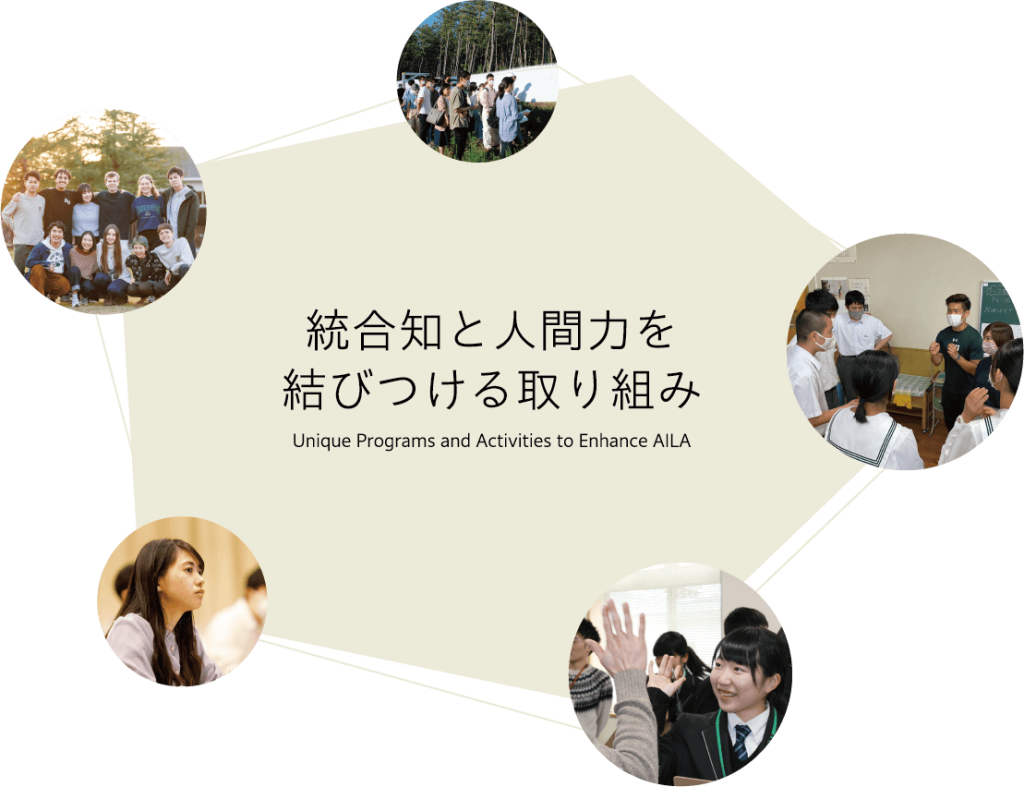
Integrated Knowledge, the skills to solve problems with a multifaceted and cross-disciplinary approach, can only be useful in the real world when you are also equipped with Interpersonal Skills, the social skills to advance projects with passion, empathy, and respect towards others and the local community.
AIU offers a variety of opportunities for students to exercise and practice the skills they acquired through AIU’s International Liberal Arts education while deeply interacting with people inside and outside the AIU community.
International Project-Based Learning
The answer is in PBL.

International Project-Based Learning (PBL) courses are conducted with partner institutions in the ASEAN region. In PBL, students work on various issues related to each area of the region through lectures, documentary research, data collection and analysis through fieldwork and other means, presentations and discussions, and report writing. Through cross-cultural experiences and interactions, students will aim to develop the ability to think and solve problems based on multifaceted analysis of the literature and collected data, as well as acquire communication and collaboration skills. In the 2019 academic year, PBL was conducted on these themes: the green economy (an economy that aims for sustainable development and growth) in the state of Sabah on Borneo, Malaysia; the potential for sustainable regional development and revitalization in Akita Prefecture and north-eastern Thailand; Japan-Thailand wartime relations, with a focus on Bangkok, Thailand; and the potential for cultural and economic exchange between Akita Prefecture and Thailand.
Dr. Norihito MIZUNO Project Promotion Director
PBL course with Kasetsart University
Completed GSS304 Sustainable Regional Development in Japan and Thailand (PBL)
I took part in PBL because I was interested in international cooperation and wanted to gain practical experience abroad. Based on the theme of developing sustainable communities, I researched the appeal and issues faced by Thailand’s agricultural regions and searched for solutions through repeated discussions with Thai students and local residents. In my final presentation, I proposed the possibility of growth through eco-tourism in the Sakon Nakhon region. I also presented the results of analyses from different perspectives, such as environmental preservation and traditional culture. Through PBL, I was able to deepen my understanding of regional development and simultaneously engage in a cultural exchange, making this an extremely valuable experience.
Yoko MORITA
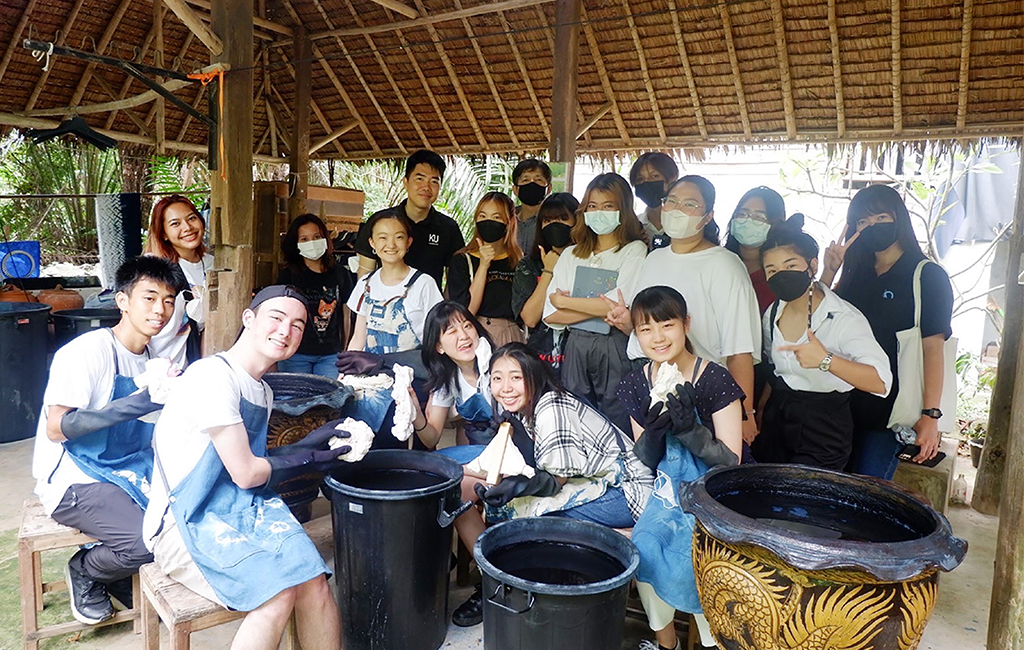
Collaborative Project with Business Sector
AIU Design Lab
AIU Design Lab is an industry-academia collaborative program in which students and companies work together to solve various issues faced by universities and companies in Akita Prefecture. In the basic workshop, students learn design thinking as an effective method for problem solving, and then apply the ideas they gain in the basic workshop to actual activities in the applied section on design thinking practice. The goal of the program is to design a better Akita by solving local issues.
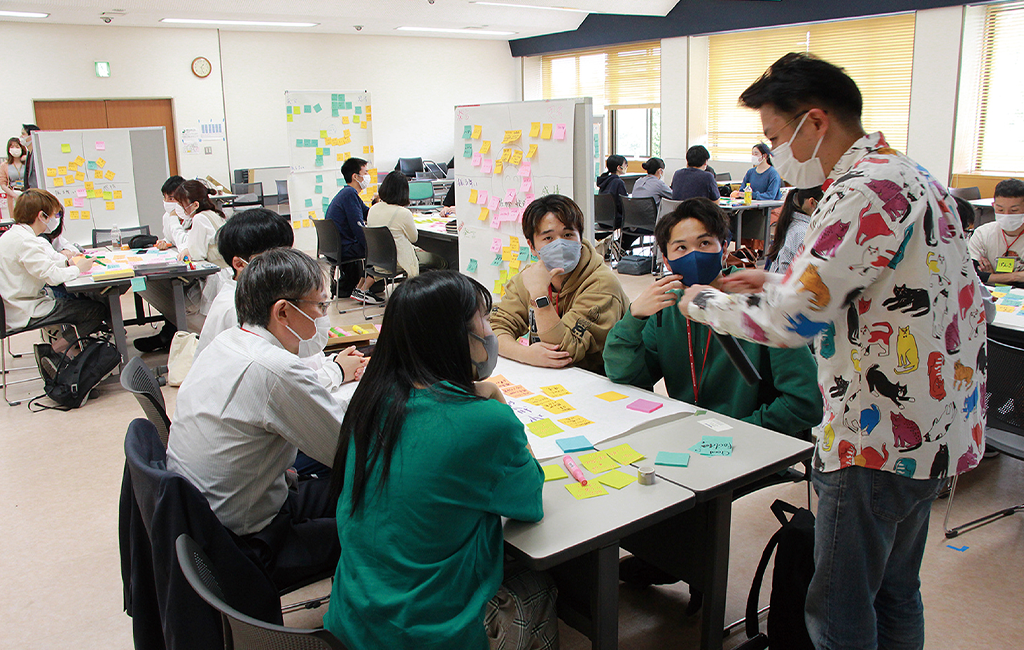
Initiatives up until now
- Digital transformation (DX) strategy for a long-established company, with consideration to tourism after the COVID-19 pandemic
- The future role of service stations in the era of Mobility as a Service (MaaS)
- Formulate a business idea to turn Akita into a place where young people want to work
Course Example: SOC326 Urban-Rural Linkages and Community Development (JR-East funded course)
AIU has a partnership agreement with the East Japan Railway Company (JR-East) Akita Branch Office and offers a fieldwork course on the theme “Kankei-Jinko” (the population of people who bring value to a region without living there), a concept that suggests a new relationship between urban and rural areas. In the course, students visit communities affected by depopulation and aging and, through interviews, study cases of community building where residents collaborate with newcomers and visitors. Students explore the possibilities of independent community development that is not limited by conventional frameworks of community revitalization and rural regeneration.
*The theme is subject to change.
Among the students, we examined what sort of role “Kankei-Jinko” has in the regional vitalization of rural regions in Japan, such as Akita Prefecture, based on past case studies, research, and theories from various regions.
While conducting fieldwork in Akita Prefecture, I talked to government officials who are actively engaged in creating Kankei-Jinko, as well as individuals who are working as Kankei-Jinko in the region and held in-depth discussions on their roles. Through this program, I was able to personally experience how strongly Kankei-Jinko creates mediation and a symbiotic environment created by local residents, governments, and settlers who each have different visions.
Yuki ISE
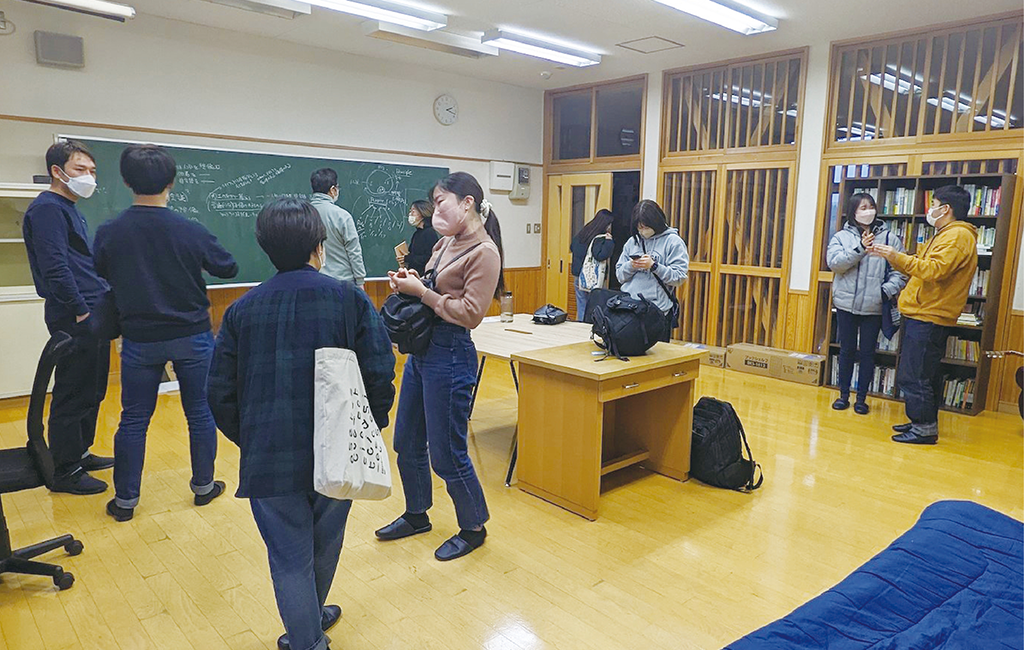
Course Example: GSS314 Global Energy Status: Opportunities and Challenges (Industry-Academic-Financial Partnership funded course)
In collaboration with Mitsubishi Corporation Offshore Wind Ltd., Venti Japan Inc., and the Hokuto Bank, Ltd., based on our partnership agreement, we are offering a funded course titled Global Energy Status: Opportunities and Challenges focusing on electricity and energy in general.
I was always very interested in environmental sustainability and green energy, but I was unable to move forward because I did not fully understand what sort of issues exist and why solving such problems is difficult.
Through course discussions, I received honest feedback and advice based on actual experience from members of various leading companies that pursue sustainability. This allowed me to clear up the vague questions I had one by one. Until then, my opinions and ideas were fuzzy and undefined, so by incorporating real-life issues and case studies, I was able to restructure them into clear proposals. This course gave me great hope and taught me about the potential for a future of wind power generation in Akita Prefecture.
Rimii KISHIOKA
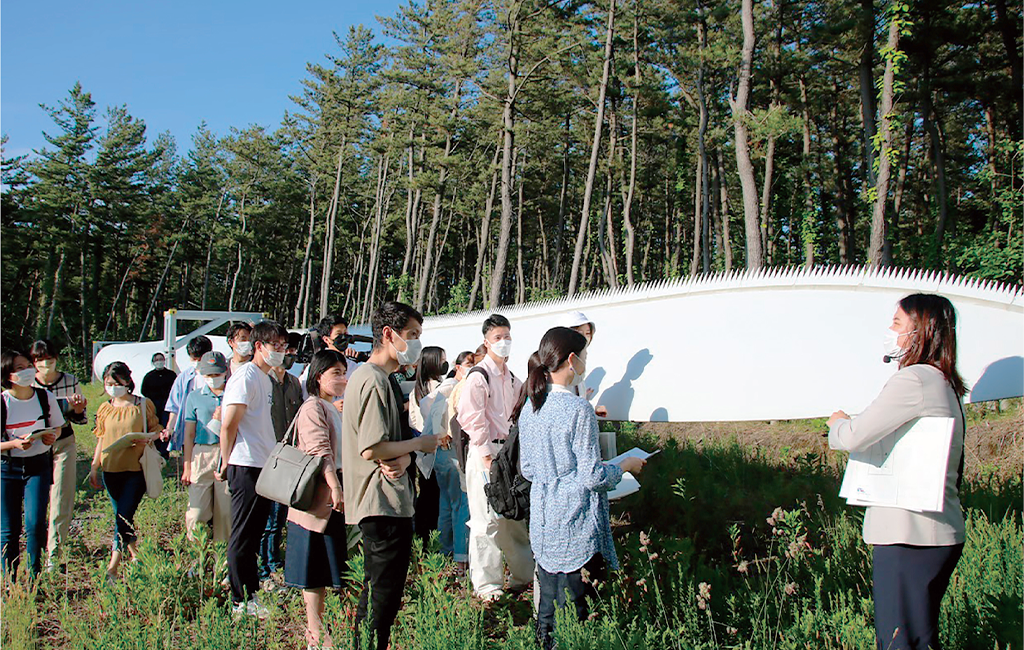
AILA Activities and Projects
Almost all Advanced Liberal Arts Courses include opportunities for knowledge integration and practical application as AILA projects inside and outside of the classroom.
Course Example: SUS310 Conservation and Sustainable Development
Students learn the importance of the global environment in the context of the world’s economy and society and consider the issues of environmental conservation to become future players in sustainable development. Through small group works on achieving sustainable land use and other various themes, students consider how to achieve sustainable development. By discussing problems with people who have different perspectives and by deepening their understanding of the issues through occasional disagreements, students acquire the skills to problem-solve collaboratively. In the real world where diverse perspectives intersect, an idea that everyone agrees with from the very beginning can be considered an underdeveloped idea. We aim to break free from the Ivory Tower syndrome.
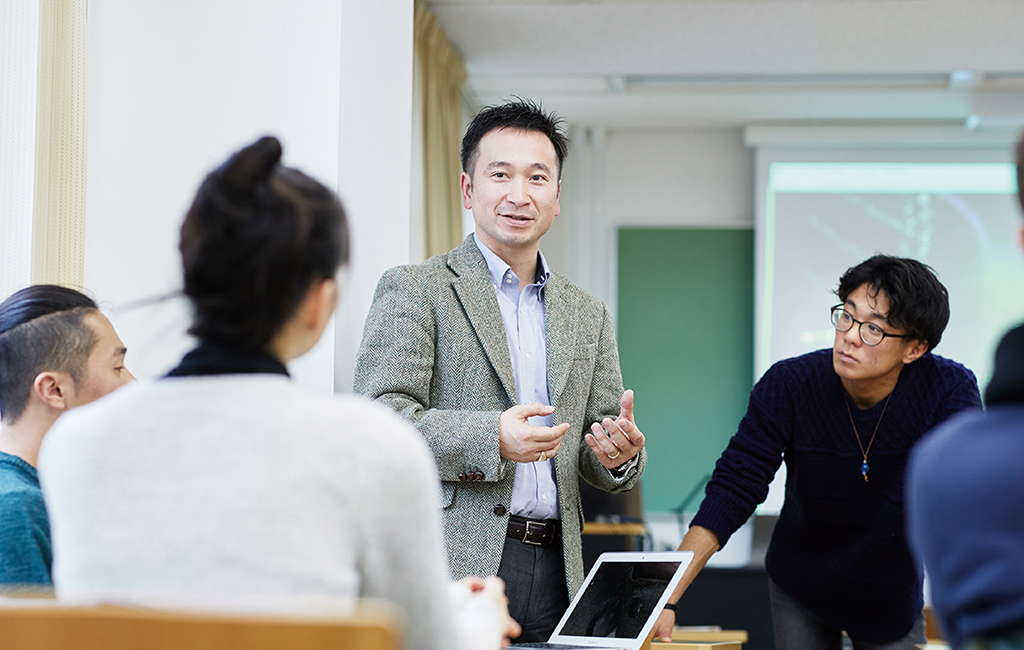
Community Outreach
AIU’s community outreach programs engage a broad range of ages, from infants to university students, with a focus on elementary and junior high schools in Akita prefecture. Through these activities, students apply and deepen their knowledge acquired during their university experience. AIU shifted the activities online in the academic year 2020, allowing students from partner universities to participate in the outreach programs virtually.
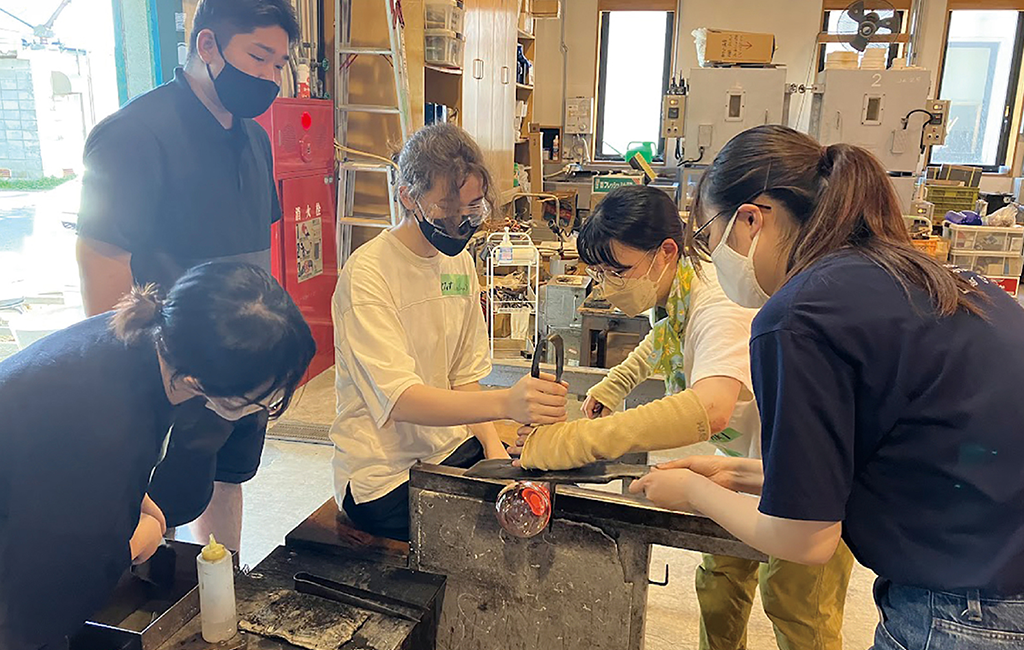
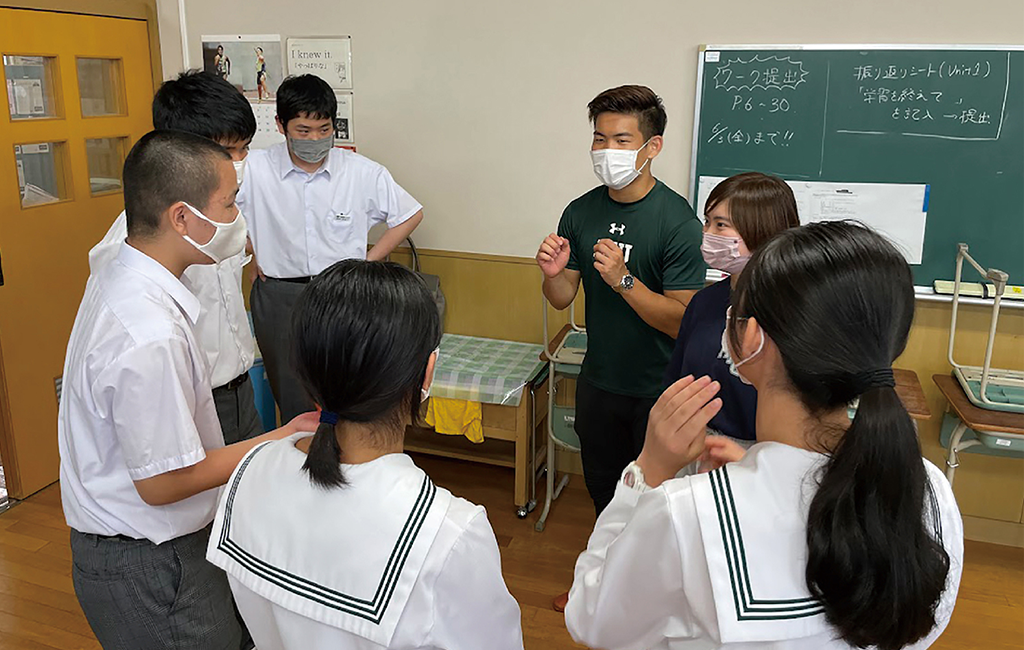
Online Community Outreach Program
Reform of English Education
English Village

We run a program called “English Village” for elementary, junior, and senior high school students to learn English in English. Through the experience of receiving training from the teaching staff, prior to teaching classes for school children, students (graduates, undergraduates, and international students) of AIU learn to be independent and active in their own studies. Children and students in Akita prefecture as well as outside the prefecture participate in the program and enjoy learning English in the global environment of Akita International University.
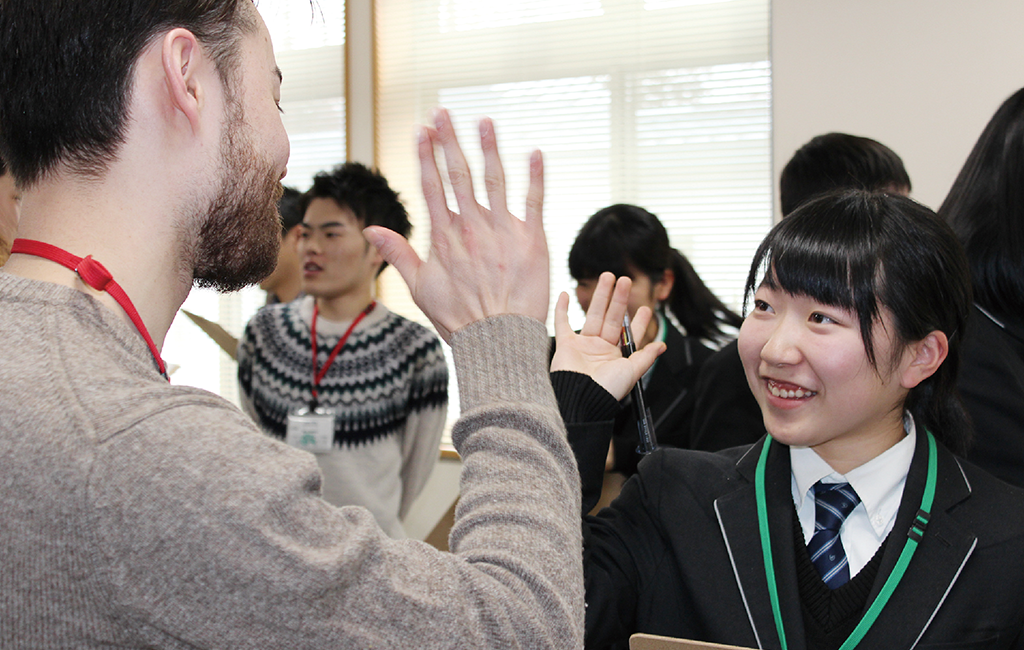
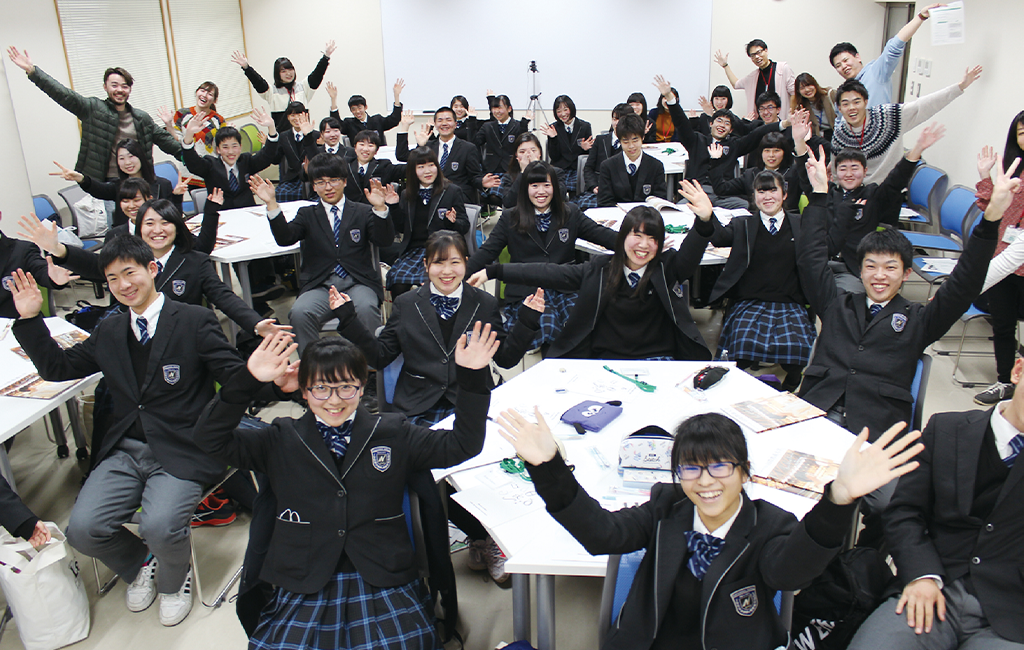
Partners Programs
The Japanese Language and Cultural Immersion Program:

The Japanese Language and Cultural Immersion Program: Advanced (J-CIP:A) is an intensive course in Akita studies taught entirely in Japanese, established by AIU in cooperation with The Australian National University.
Akita is emblematic of Japan’s rural areas. Dependent for a long time on agricultural as the core of its economy, Akita was one of the first prefectures to experience population decline, long before Japan as a country did. As such, it has been a case study for the effects of rural depopulation and rural rehabilitation efforts.
Being able to participate in this program has been an incredible experience, most definitely one that I will never forget!Immersing myself in Akitas rich culture has not only been as rewarding as it is fun, but it has greatly improved my Japanese.Experiencing life as an AIU student, even for a short time, has been a fulfilling opportunity. I would highly recommend the program to anyone who is considering applying! The friends I have made, experiences I have had and the deeper understanding of not just Akita but Japan as a whole make this program unforgettable.
Alice MCLOUGHLIN (Australia National University)
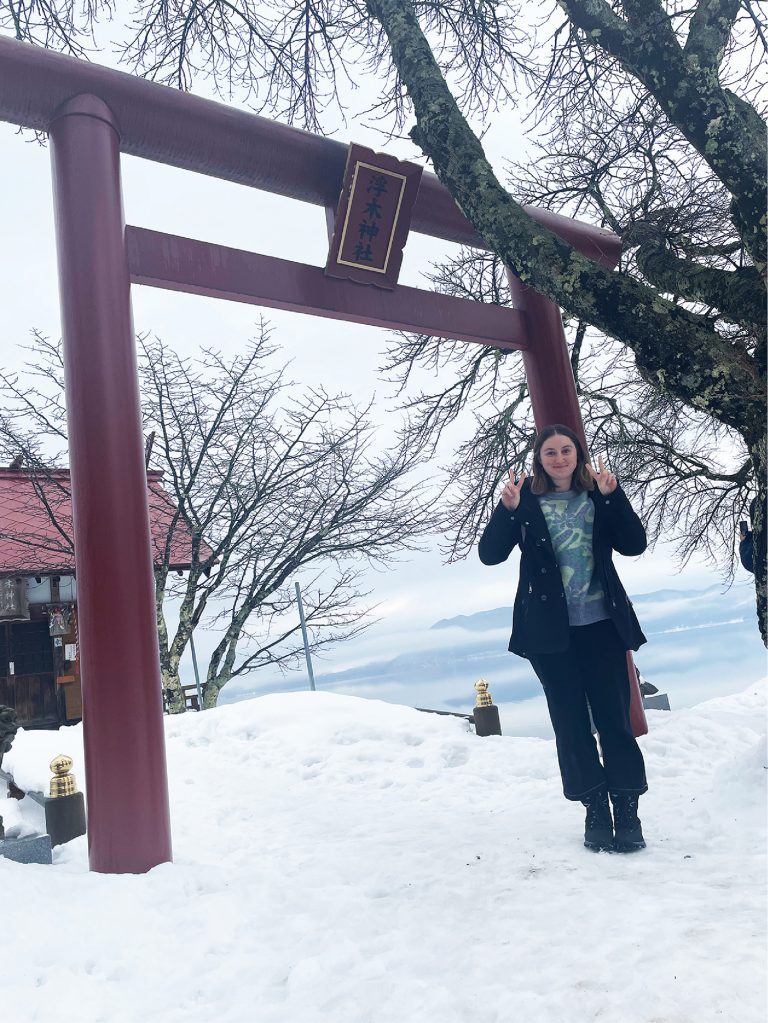
Themed House
Top Global University Project (AY2014-AY2023)

The campus has a student dormitory for first-year students and student apartments for second-year and older students, where students live together with foreign exchange students. To enable students to take advantage of this diverse environment, Themed Houses were introduced in the academic year 2014, where students live together for a semester to plan and organize themed events. In the academic year 2021, the Nihongo House and Russian (Slavic) Language & Culture House were both actively engaged, although their activities were restricted to online format due to the pandemic. AIU considers campus life to be part of its liberal arts education, where students can enhance their skills in daily life in addition to their curricular activities.
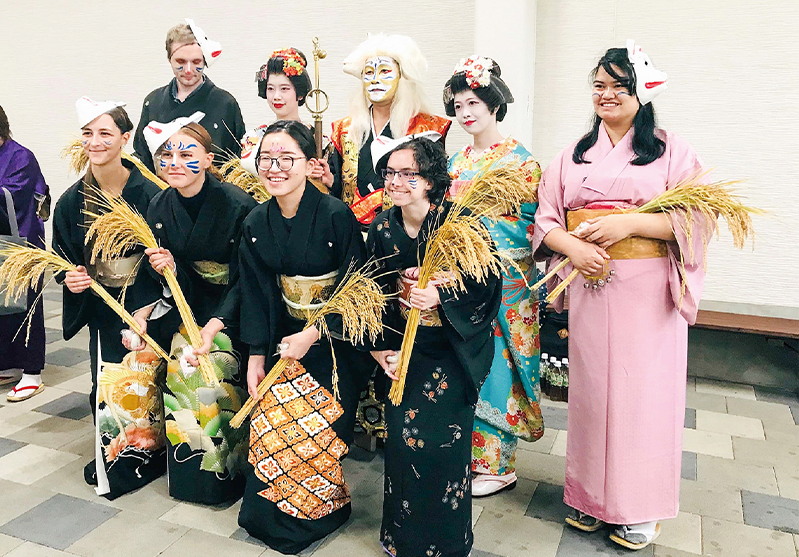
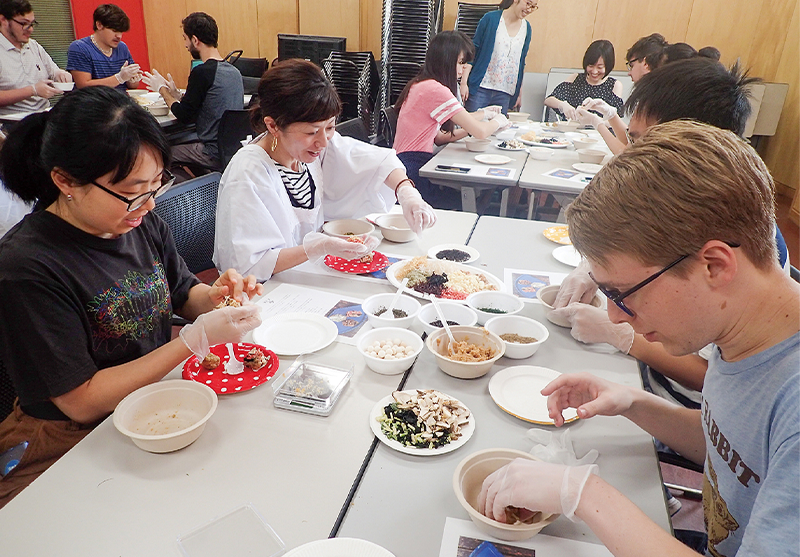
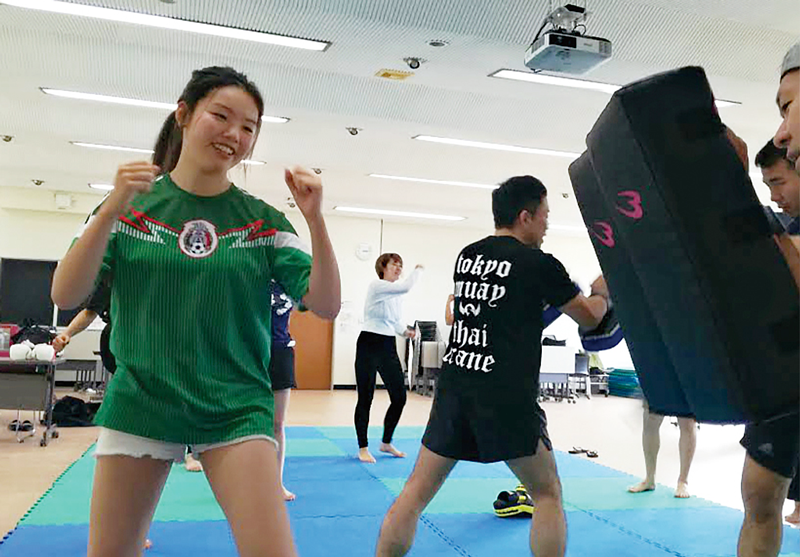

Top Global University Project
In 2014, Akita International University was selected as a Type B (Global Traction Type) university which lead to the internationalization of Japanese society. “Top Global University Creation Support Project” by Ministry of Education, Culture, Sports, Science and Technology.
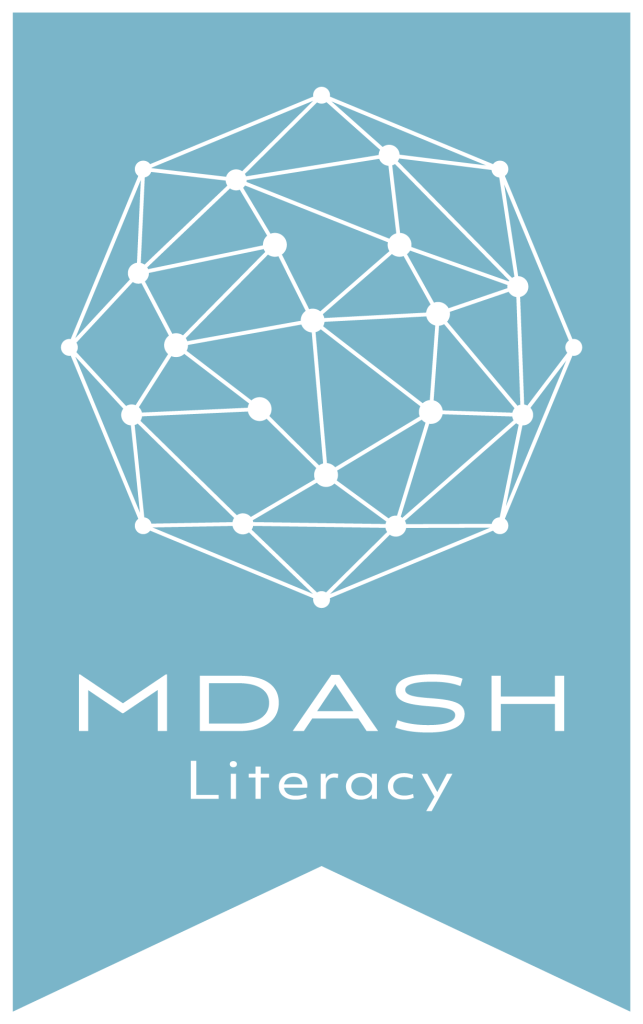
BUILD Program
AIU’s BUILD (Building Information Literacy for a Digital Society) program is designed to increase students’ interest in mathematics, data science, and AI and develop their ability to understand and use these methods appropriately. This program has received the MDASH Literacy Level Accreditation by the Japanese Government, valid until Mar. 2028.
